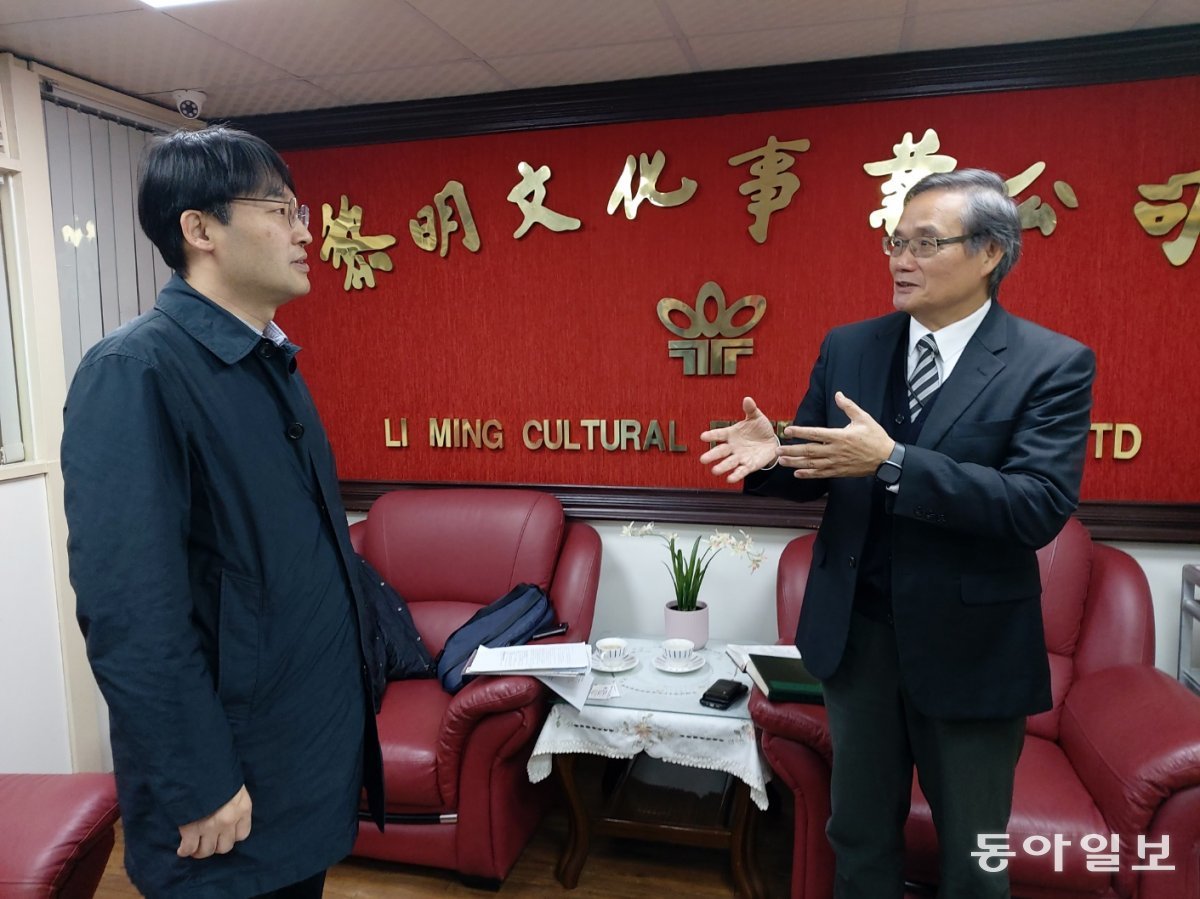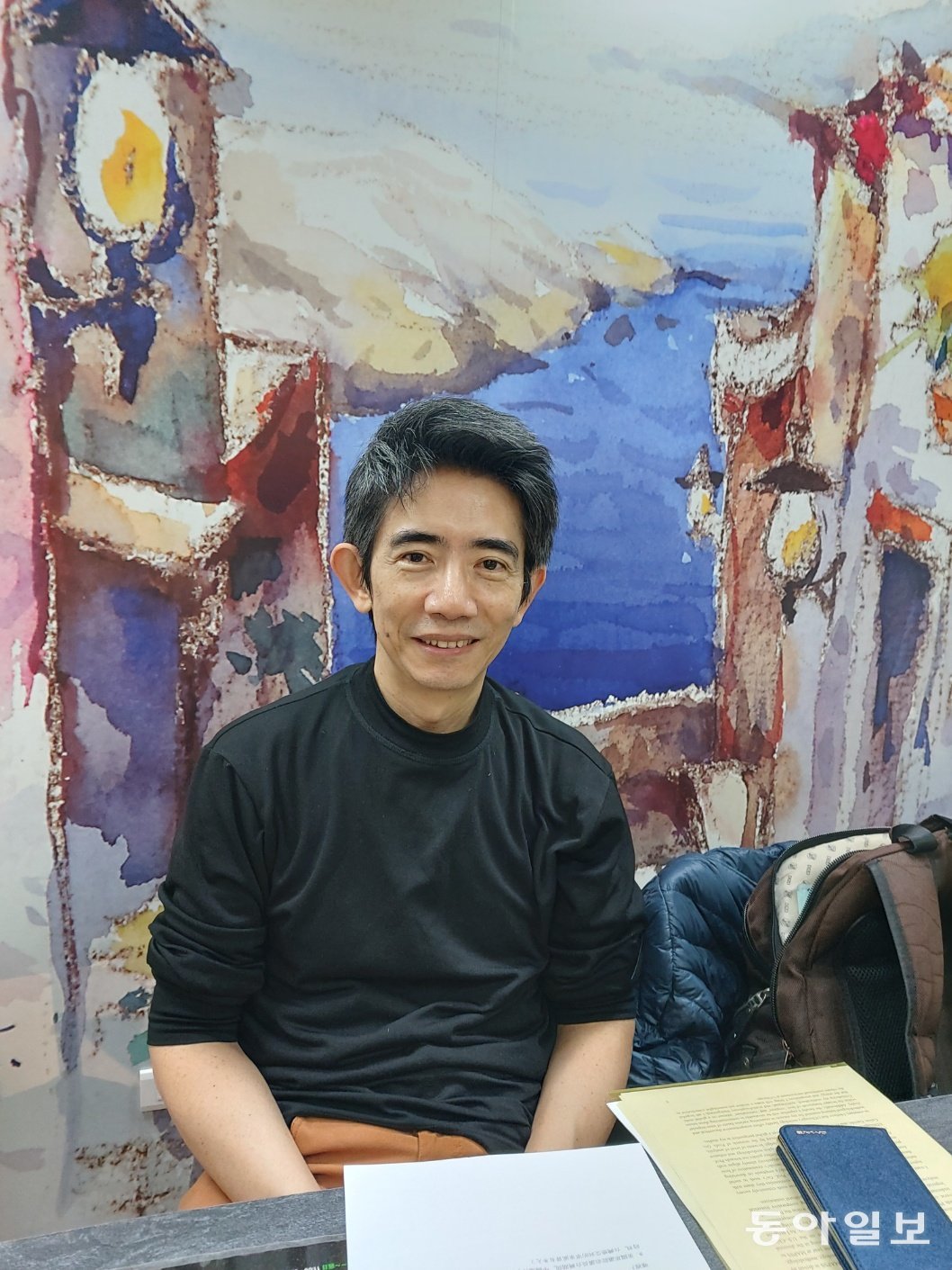Taiwan ahead of presidential election… Local expert interview
“With Wen Gong Wuhe, China has continued to intervene in Taiwan’s elections since 1996.”
The biggest issue and topic in Taiwan’s presidential and legislative elections held on the 13th is China’s election interference. Professor Emeritus Wong Ming-hsien of Danjang University, whom I met in Taipei on the 4th, said that the controversy over China’s intervention is not something that happened yesterday or today. This has been the case since 1996, when Taiwan began directly electing its president. In that way, all civil and military methods were mobilized. Moon refers to propaganda, public opinion warfare, and united front tactics, while mu refers to an attempt to influence voting through a show of force.
On the 9th, four days before the presidential election, China launched a satellite that passed over Taiwan, and Taiwanese authorities issued an alert. China launched a missile into the Taiwan Strait before the 1996 presidential election when Kuomintang candidate Lee Teng-hui advocated Taiwan’s independence through the ‘two China theory’. However, this ‘northern wind’ had the opposite effect and President Lee was elected with overwhelming support.
China’s strong response to Hong Kong’s pro-democracy protests had a significant impact on the re-election of current President Tsai Ing-wen in 2020. As such, China is becoming a powerful variable in Taiwan’s presidential election held every four years.
Professor Wong analyzed, “China’s intervention is becoming more intense in this election and is expanding into various fields.” This is because China believes that if the Democratic Progressive Party takes power again after the independence-oriented Democratic Progressive Party Tsai Ing-wen government has been in power for eight years, cross-Strait relations will become further distant.
Taiwan has been in power alternately for eight years, with President Chen Shui-bian (Democratic Progressive Party) from 2000, President Ma Ying-jeou (KMT) from 2008 to 2016, and President Tsai Ing-wen (Democratic Progressive Party) from 2016 to 2024. The cold relationship has continued as President Tsai does not recognize China’s ’92 formula’, which contains the principle of ‘one country, two systems’. Professor Wong’s analysis is that China’s ‘Wenkong Wuhe’ campaign is becoming more active as the current Vice President, Lai Qingde of the Democratic Progressive Party, is highly likely to be elected in the election on the 13th.
Professor Wong pointed out that Chinese People’s Liberation Army planes entering no-fly zones and Chinese authorities paying for Taiwanese village chiefs to visit the mainland are representative examples of election interference. However, Hongyuan Zhang (張弘遠), an associate professor at Zhili University of Science and Technology whom I met in Taipei as a Kuomintang supporter, argued that the event to invite village chiefs has been continuously held at the level of cross-strait exchanges and is not election interference. Professor Wong also interpreted that China is showing the principle that ‘if it supports Taiwan’s independence, it is war, and if it opposes it, it is peace’, but it is not involved in any local elections other than the presidential election in Taiwan.
 View largerProfessor Emeritus Wong Ming-shen (right) is talking with Dr. Younghee Jang (Chungnam National University Peace and Security Research Institute) about the controversy over China’s intervention in Taiwan’s presidential election at an office in Taipei on the 4th. Taipei =
View largerProfessor Emeritus Wong Ming-shen (right) is talking with Dr. Younghee Jang (Chungnam National University Peace and Security Research Institute) about the controversy over China’s intervention in Taiwan’s presidential election at an office in Taipei on the 4th. Taipei = Dr. Younghee Jang (Chungnam National University Peace and Security Research Institute), who accompanied Professor Wong’s interview, said in the latest issue of ‘Sungkyun China Brief’ that this election is framed as ‘a choice between democracy and dictatorship’ (Democratic Progressive Party) and ‘a choice between war and peace’ (KMT). It was introduced that it was in progress. This is because there is a clear difference in attitudes toward China between the independence-oriented Democratic Progressive Party and the pro-China Kuomintang.
Dr. Zhang said, “If Democratic Progressive Party candidate Lai Ching-de is elected, I would like to meet with President Xi Jinping” and “We will exchange with China on equal terms without preconditions,” but he is an “icon of Taiwanese independence,” so if Lai Ching-de takes power, cross-strait cooperation will be possible. It was analyzed that tensions between China and Taiwan will inevitably increase.
As the war for hegemony between the United States and China intensifies, some say that Taiwan’s presidential election is a proxy war between the United States and China. The logic is that China supports the pro-China Nationalist Party candidate Hou Youyi, while the United States supports candidate Lai Qingde.
In response to this, Professor Wong said, “In Taiwan, all presidential candidates from any political party visit the United States before the election to meet with people from China and basically agree with the Taiwan policy that the United States considers,” adding that the United States does not unilaterally support a candidate. Opinions differed.
Professor Wong said, “There are three major US cross-strait policy stances. “China must not use force, Taiwan must not become independent, and the people on both sides of the Straits must negotiate and negotiate peacefully,” he said, adding, “None of Taiwan’s candidates is claiming independence.” Professor Wong emphasized, however, that the fact that Taiwan does not claim independence does not mean that it will become a separate ‘Democratic Republic of Taiwan’ in the legal sense.
Like the Korean Peninsula, Taiwan is bound to be affected by the U.S.-China hegemony conflict, and former Vice President Lu Shulian (呂秀蓮) from the Democratic Progressive Party is in the position that “Taiwan should not get involved in the conflict and should take the path of neutralization.” Vice President Lu emphasizes ‘One China’ rather than ‘One China’. This means that both the People’s Republic of China (China) and the Republic of China (Taiwan) include ‘China’. Therefore, both sides also pursue ‘integration of the two sides’ rather than unification, emphasizing cross-strait exchanges. This can be interpreted as a compromise between Taiwanese people’s perception of freedom and independence while not directly denying China’s ‘one country, two systems’ policy. But China still does not recognize it.
Regarding this, Professor Wong explained, “The situation has changed as President Xi Jinping pursues China’s rise to great power.” This can be interpreted to mean that it is not easy to stick to a neutral policy between the United States and China. Professor Wong emphasized, however, “It is important to communicate with China to avoid misjudgment on the military front, and to make China understand that Taiwan does not seek legal independence.”
 View largerWang Hong-lun, deputy director of the Sociological Research Institute of Taiwan’s Central Research Institute, is being interviewed at a cafe in Taipei on the 6th. Taipei =
View largerWang Hong-lun, deputy director of the Sociological Research Institute of Taiwan’s Central Research Institute, is being interviewed at a cafe in Taipei on the 6th. Taipei = As the North Korean nuclear threat increases, South Korea is of great interest in how much it can trust the U.S. nuclear umbrella in its expanded security system with the United States. If Kim Jong-un threatens New York and Washington with nuclear weapons and attempts to attack South Korea, the so-called ‘De Gaulle doubt’ is whether he can intervene to protect South Korea at the expense of those cities.
“After the Ukraine War, the concept of ‘American suspicion’ emerged in Taiwan,” said Wang Hong-lun, deputy director of the Sociological Research Institute of the Academy of Sciences. There are questions about the extent to which the United States will protect Taiwan when the competition for hegemony between the United States and China intensifies.
There have always been doubts about America’s security commitments, but the concept of ‘American suspicion’ emerged after the Ukraine War, as geopolitical conflicts erupted around the world and the number of places where the United States had to intervene increased, so there were bound to be limits to U.S. intervention. This is interpreted as because there is none.
Deputy Director Wang analyzed that the fact that public opinion polls showed that the Democratic Progressive Party candidate for the President is highly likely to be elected in this election, but that the opposition Kuomintang Party will win the majority in the Legislative Yuan, has the meaning of ‘checks and judgments’. Deputy Director Wang said that it was a close call and that the results had to be seen, but that if voters’ choices for the Presidential and Legislative Council elections were different, it was a reflection of Taiwan’s tendency to dislike one-party dominance during the democratization process.
In the Legislative Yuan election, the ruling party currently holds 61 seats out of 113, and the opposition People’s Party holds 38 seats, but many predict that the People’s Party will take the lead. Vice-Director Wang assessed that if the Kuomintang becomes the majority party even if it does not exceed the majority, it will show that anxiety is growing as tensions with China have continued due to the Democratic Progressive Party’s rule for the past eight years, and that there is dissatisfaction with economic policies for the people’s livelihood.
Taipei =
Source: Donga
Mark Jones is a world traveler and journalist for News Rebeat. With a curious mind and a love of adventure, Mark brings a unique perspective to the latest global events and provides in-depth and thought-provoking coverage of the world at large.